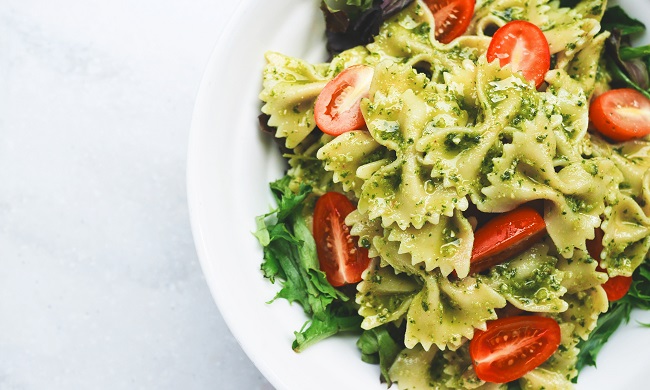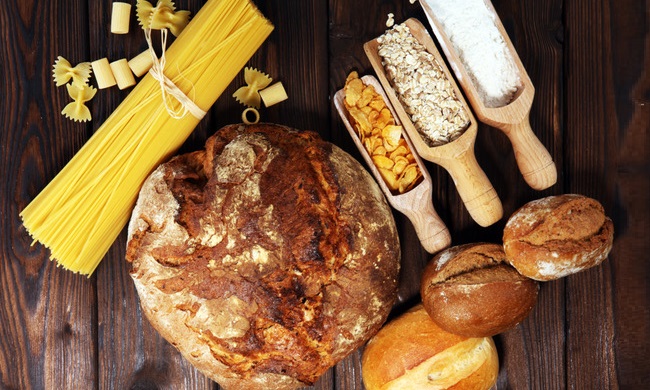Carbohydrates have received bad press over the years due to their association with fat gain, creating the popular low carbohydrate diets. Co-founder of Your Body Programme, Terry Fairclough shares her expert insight…

Yes! It’s true that eating the wrong type of carbs in the wrong amounts and at the wrong time of day can contribute to fat gain, but so can eating the wrong type of protein and fat. Whether the body uses or stores the carbs depends on your glycogen (stored carbohydrate) status, your activity level and the intensity in which you perform those activities. When your blood sugar levels drop (hours without food or 25-30 minutes into a workout), glycogen will be released for fuel. Only a finite amount of glycogen can be stored, endomorphs with their fast twitch muscle fibres can store more than an ectomorph.
Eating more carbohydrate than your body needs at any point will inevitably lead to it being converted to fat, a process called De novo lipogenesis. I have recently seen on Instagram posts showing a potato being the same before and after 6pm, while this is true how what are bodies are doing before and after 6pm is “generally” not the same. A majority of us are mentally and physically active during the day, the food we consume is digested and enters the blood stream, we then use this to power whatever it is we are doing. If we are sitting at home in the evening we simply do not need as much energy, so any extra fuel that isn’t being used or stored as glycogen in muscle will inevitably be stored as fat.
Blood sugar levels rise after a meal, stimulant or stress. If you are stressed, eat high glycaemic carbohydrates or if we drink too much caffeine blood sugar will increase, which then creates us to crave sweet foods to bring the level back to normal. Insulin is a hormone responsible for keeping the blood sugar levels within the normal desired range. Insulin works by opening channels on cell membranes to facilitate glucose uptake from blood into the cell. A surge of sugar into the blood stream is dangerous to the body, so it over reacts by releasing insulin and brining blood sugar too low.
Keeping blood sugar balanced helps prevent fat gain, energy, mood swings, depression, low immunity, inflammation, headaches, dizziness, cravings for sweet foods and palpitations.
From what I have said it may at first seem that I am saying carbohydrates should be avoided, however I am not, we just need to use them wisely. Eating the correct type, at the right time and the right amount for your body type, life style and goal is the key.

I have seen people get “short term” results cutting carbohydrates. The reason for this isn’t always fat loss. For every molecule of carbohydrate there are two to three molecules of water attached, so weight (not fat) is lost from the removed carb stores and the attached water. This will increase fat oxidation, but we will also break down protein which is biologically active. Over a longer period of time the loss of protein will slow metabolism, making it harder to lose fat. The body sees fat as its life preserving fuel. If we suddenly, dramatically alter our diet the body will go into panic mode, trying to hold on to the fat. When we are in a catabolic state (under eating), we produce more cortisol. Chronic release of cortisol will cause the body to up-regulate fat receptors around cells to try and maintain its stores. The body will also down regulate thyroid output, further slowing metabolism. The long-term effects of a slow metabolism is that it is easier to gain fat back.
At YBP we are all about up-regulation. Don’t starve your body, feed it, increase your metabolism through diet and exercise, help your body work to its optimum.
To help keep your blood sugar within a healthy range try to avoid refined foods (white bread, white pasta, white rice), sugary foods (confectionary, sugary drinks), convenience foods (they often contain hidden sugars and can be high in saturated fats) and stimulants (tea, coffee, alcohol, chocolate). Instead, eat foods that balance blood sugar such as whole grains (complex carbohydrates, which release sugars slowly into the blood so provide sustained energy and help balance blood sugar). These include brown rice, quinoa, buckwheat, sweet potato, whole grain pasta and wholegrain bread. Oats are particularly good, making them an excellent choice.

From scaling mountain peaks to savouring exotic flavours, I’m a passionate explorer with an insatiable appetite for adventure and good food. As an Outdoor Adventure and Travel Editor, I’m constantly seeking new experiences that ignite my senses and broaden my horizons. Through my blog, I share captivating travel tales, mountain-tested advice, healthy food inspiration, and training tips to empower fellow adventurers on their own journeys of discovery.
Follow Sam’s adventures on Instagram @sams_adventures_x